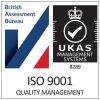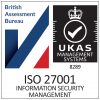Research, Development and Demonstration
Developing quality assured sorption databases for performance assessment (2013)
MCM conducted an investigation to provide Quintessa Japan with an overview of the Nagra Opalinus Clay sorption databases. This involved a summary of the background to Nagra work on sediments/clays, a critical review of the sorption database development process and a summary of sorption database developments. The key part of the work was to evaluate the the application of the database within the safety case and assess the wider applicability of the work performed, particularly in respect to potential use for Japan’s national geological disposal programme.
Microbes Strategy Review for RWM (2012)
NDA RWM had received differing views from a variety of stakeholders on their assessment of the needs and prioritisation of proposed R&D on the impact of microbes. MCM subsequently supported RWM with facilitation and scientific coordination of a review workshop on this theme to discuss the activities planned to assess microbial impacts during the generic and site-specific phases of the RWM programme. The invited experts highlighted seven specific recommendations on how RWM might best implement the recommended programme of work and a series of RWM actions related to both this list and the overall workshop were identified. The workshop discussions, decision points and recommendations made have been captured and documented in the workshop record, this includes a mindmap to link suggestions for future work with key strategic areas of the RWM R&D programme.
Nagra Sorption Database Review (2012)
Dr Ian McKinley conducted an investigation for QJ Science to provide an overview of the Nagra Opalinus Clay sorption databases. This involved a summary of the background to Nagra work on sediments/clays, a critical review of the sorption database development process and a summary of sorption database developments. The key part of the work was to evaluate the application of the database within the safety case and assess the wider applicability of the work performed, particularly in respect to potential use for Japan’s national programme.
Colloids Strategy Review for RWM (2011)
Despite a significant body of research into the role of colloids in facilitating the transport of
radionuclides in the environment over the last 35 years, there remain unanswered questions and
uncertainties concerning their potential impact. With the UK Government’s decision to adopt
geological disposal as the solution for the long-term management of higher activity wastes in the
UK and the subsequent ramping–up of the NDA’s research programme in support of geological
disposal concepts for both HLW/SF and ILW, a critical review of the progress made in research
into geosphere colloids, and identification of priorities for future research was felt to be timely.
MCM supported RWM by providing a workshop Chairman and Secretariat who coordinated expert attendance, preparation of workshop presentations and drafting of the workshop record. It was attended by world renowned colloids experts working in the field of radioactive waste disposal.

Participation in EC Project FUNMIG – Fundamental processes of radionuclide migration (2004-2008)
Dr Tara Beattie of MCM participated in the EC FUNMIG project funded under the European Commission (EC)’s Sixth Framework Programme (FP6). The project dealt with the migration of radionuclides in the far-field of nuclear waste repositories in the three different host-rock types presently under investigation in Europe, namely clay, crystalline and salt. The project tackled one of the main challenges for a sustainable European energy mix, scientific and social credibility of geologic HLRW disposal. Tara participated by completing a 4 year experimental programme at Loughborough Radiochemistry Department to investigate the sorption of key radionuclides to a range of representative mineral surfaces of relevance to waste disposal scenarios. The scope included binary and ternary systems (radionuclide-mineral surface-ligand) including the impact of natural organics and anthropogenic ligands common in some UK ILW wastes. Tara completed thermodynamic modelling of data generated and contributed to wider collaboration across the FUNMIG project to support transport modelling in larger-scale disposal systems.
« Back to view all case studies
If you'd like to enquire about this or a similar project...
Click here »








